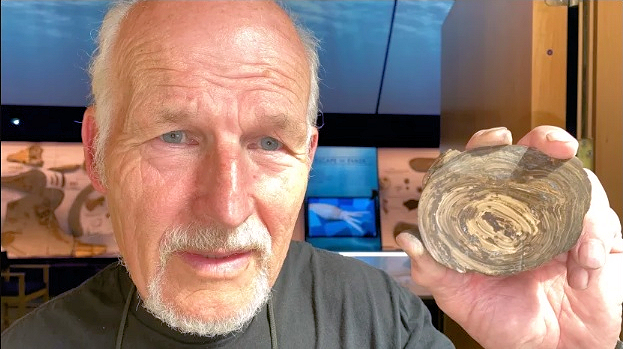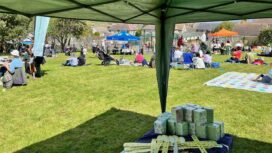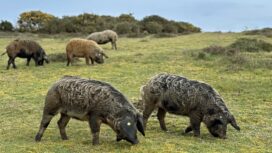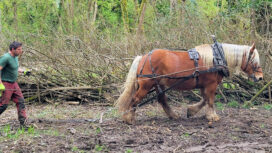A mysterious fossil found on Kimmeridge beach in Dorset has turned out to be a record breaking 150 million year old medical complaint which would have given a Jurassic sea monster a mammoth stomach ache.
Renowned palaeontologist Steve Etches found the unusual fist-sized fossil on Purbeck’s Jurassic coast 30 years ago, but was unsure what it was, so simply had it on display as a curiosity.

The stomach stone fossil would have formed inside a Jurassic sea monster
Only specimen discovered in the UK
Over the years, experts dismissed it as a curious rock formation caused by geological actions, until research fellow at the University of Reading Nigel Larkin took a closer look in 2022.
He was convinced it was caused by biological action, and a university study backed up his suspicion that it was a calculus, a hard build up of minerals formed in the stomach, bladder or kidney – and a university study has now proved him right.
The rock strata at Kimmeridge dates the stone to 150 million years ago, making it the oldest ever discovered by some 59 million years and the only specimen so far discovered in the UK.

Sea creatures of the Jurassic era swam the Dorset coast 150 million years ago
Causing sudden and rapid pain
It has raised interest in the scientific world not only because of its age but also as it would have formed inside a sea beast like a plesiosaur or a pliosaur rather than a land-living dinosaur.
What it would have meant for the unfortunate sea creature would have been sudden and rapidly intensifying pain starting in the stomach and spreading through the abdomen which could have led to its death.
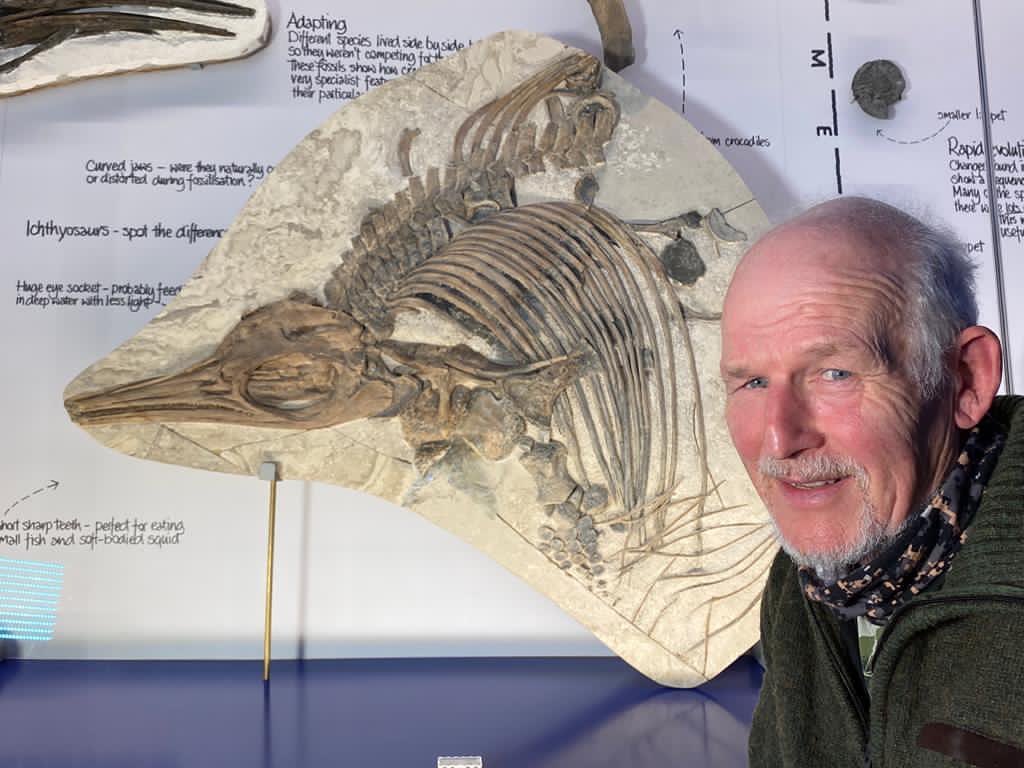
Steve Etches with the skeleton of an ichthyosaur at his Kimmeridge museum
“A very exciting and rare discovery”
Dr Nigel Larkin led the study, and said:
“I was fascinated by this very curious mystery object and was determined to discover what it was.
“Unless stomach stones are actually found preserved within a skeleton it is almost impossible to tell what sort of animal it might have formed inside.
“The size of this stomach stone, and considering it was found in clay from the upper Jurassic era, indicates it most likely formed inside a large marine reptile such as an ichthyosaur, plesiosaur, pliosaur or crocodilian.
“The stomach stone did not come from a dinosaur – as dinosaurs lived on land – but this is still a very exciting and rare discovery.”
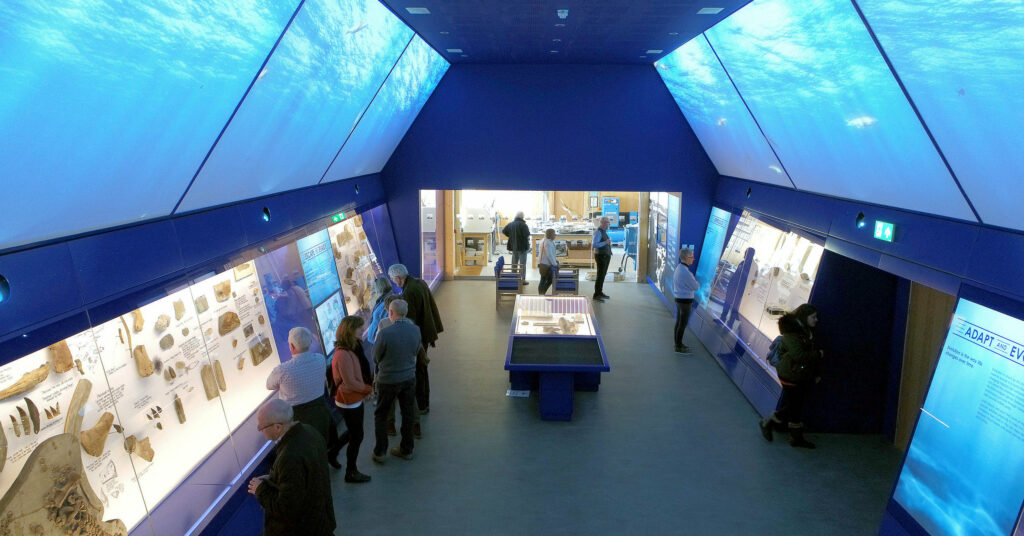
Inside the gallery at The Etches Collection in Kimmeridge
Extensive collection in its own museum
Mineral ‘stones’ can form naturally in any animal, including humans, under certain dietary or environmental conditions. Ancient examples have been discovered in Egyptian mummies but only a handful have been discovered in fossils.
The specimen discovered by Kimmeridge resident Steve Etches has all the characteristics of one formed in a gastro-intestinal tract, known as a stomach stone, rather than a more common kidney or gall stone.
This very rare find adds to the exceptional range of unusual fossils discovered in the cliffs at Kimmeridge by Steve, whose extensive collection is world famous and is now housed in its own museum.

A model of one of the sea creatures which may have suffered with the stomach stone
Jurassic coast once a tropical shallow sea
The Etches Collection is open to the public and contains the skeletons of prehistoric fish, ichthyosaurs, pliosaurs, plesiosaurs and pterosaurs found along the Jurassic coastline.
It is planned to put the Jurassic calculus on permanent display within the amazing collection after an imminent revamp of the museum, although in the meantime there is much else to see at Kimmeridge.
Opened in 2016, the collection has displays of sea monsters, prehistoric predators and the marine flora and fauna of around 150 million years ago when Dorset’s Jurassic coast was a shallow sea close to the equator.
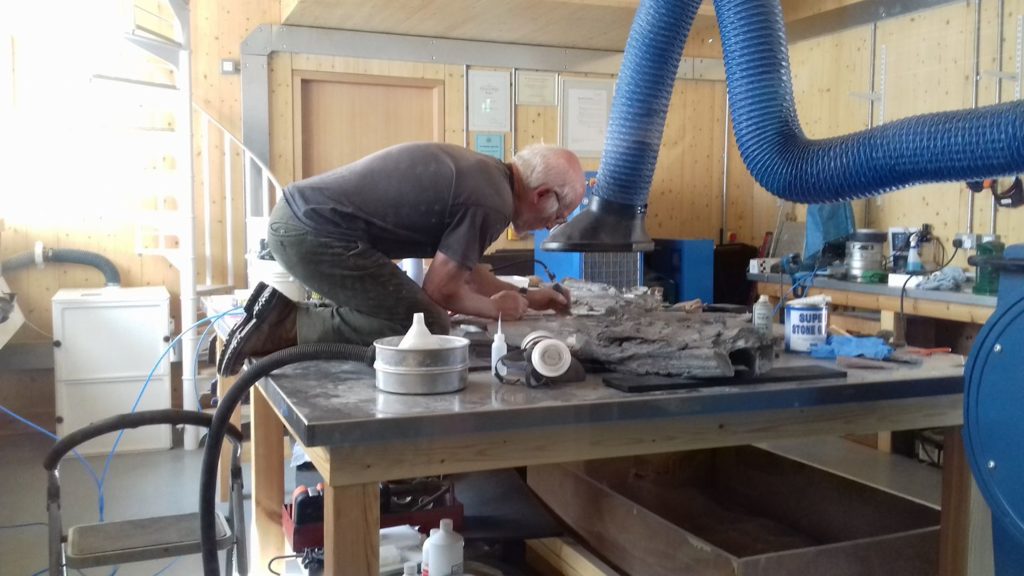
Steve Etches gets up close to painstakingly clean a new exhibit in his workshop at the museum
Quest to show the worth of Kimmeridge clay
Steve said:
“The stone had been in the collection for a very long time, but when Nigel Larkin saw it last year he got excited as it looked identical – other than its size – to a human stomach stone he had.
“He asked to borrow it and research at the University of Birmingham proved him right. It won’t change the world but it goes way back in time.
“The interesting thing is that we have an ichthyosaur here with a large hard lump in its stomach which we hope to catscan in the near future which may prove to be another and dispel any doubt.
“Kimmeridge Clay has been described as the least interesting of all of the Jurassic rocks to the British fossil collector and been dismissed as having little to offer in the way of good fossil specimens.
“My quest has been to show that’s not so and I’m proud to say that I believe I have achieved that.”
Further information
- Discover more about the Etches Collection
- The full findings of the study were published in July 2023 in the journal Proceedings of the Geologists’ Association
